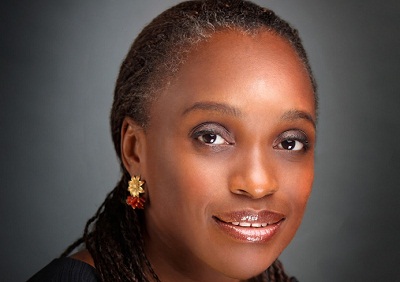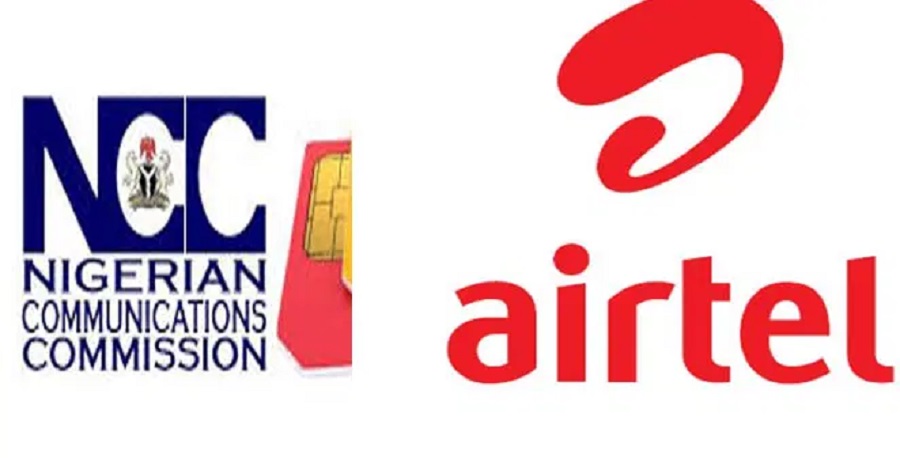Telecom
FG to Focus on Coys, not Codes in Software Development Plan-Johnson

Mrs. Omobola Johnson, minister of Communication Technology, said that an assessment of the nation’s software industry landscape has revealed that dual points of innovation process and companies, not code are the critical aspects to tackle in order to tap into the potentials.
She made the remark at the ISPON 2013 National Software Conference and Competition in Calabar, Cross River State.
Johnoson regretted that several billions of naira leave the shores of Nigeria every year as licences and other fees to foreign software companies.
“This doesn’t have to be. Software Strategies for us as a country must be not only about improving productivity because it also provides an avenue for transforming the economy, creating jobs and creating wealth. So we need to tackle the broader challenge of how we take our promising software developers and software engineers and help them to become entrepreneurs that can take advantage of this opportunity?,” Johnson remarked.
While extolling ISPON for this year’s theme, “Software Strategies for Retooling the Workforce”, she added that Software has indeed accelerated productivity in the workplace, “for example the simple word processing tools and spreadsheet tools that we had in the 80’s to the more encompassing office productivity tools such as the Microsoft Office suite .
“From simple accounting packages to the sophisticated Enterprise Resource Planning applications that support the entire organisational functions, HR, Accounting, Finance, Logistics, Billing, Procurement etc’, I am sure you can think of many other examples of the impact that software has made to workplace productivity”.
She maintained that with an accepted and well documented failure rate of 90% in the software enterpreneurship space, stakeholders must accelerate and scale up the innovation process.
Johnson said: “Silicon Valley and Israel (a country that has earned the appellation of “start up nation’) have literally thousands of companies in the ideation or start up stage at any point in time, the outcome of which is tens of companies that are either acquired by the bigger players or go on to become big players themselves. (Shopping.com acquired by ebay for $620m, face.com a face recognition software acquired by Facebook for $100m.
“We have made some progress in the short time that the Ministry of Communication Technology has been in existence. There is a thriving ecosystem of innovation hubs with the private sector participating well through the Co-Creation Hub, Venia Business Hub and others.
“The government has also intervened with the set up of the iDEA hubs in Lagos and Calabar (with more to come) which aim to cover both the innovation and ideation process as well as accelerating the process from ideation to business creation. Our first cohort of incubates at the iDEA hubs were drawn from the developers that provided solutions adjudged as having potential by the Oil & Gas as well as financial sectors. Our next cohort will be tasked with building solutions for the Agriculture, industry, an effort being designed together with USAID…
“We are open to ideas as to the what solutions should be tackled next as we believe that software solutions that come out of our industry should be designed to meet particular needs, commercial as well as social and of course be exportable to other countries.
“We would do well to benchmark ourselves against other regional economies like Kenya and South Africa. The global success of the Kenyan Ushahidi platform shows we have a long way to go as we do not as yet have the one (or more) software solutions that have international appeal and are instantly recognizable as Nigerian. The South African software industry, with its exports of homegrown fraud prevention, revenue management solutions, mobile applications as well as an instantly recognized Open Source platform (Ubuntu) drives home this point.
“Ideally, these kinds of hubs should grow organically in Universities, Cyber cafes, libraries as access to the Internet improves but it will be much easier to roll out a clear philosophy through a connected network of hubs started by the government but ultimately will be run by the private sector”.
She added that the philosophy must also instill in the nation’s entrepreneurs the freedom to experiment that will truly free their ideation process. Too many software solutions that are released these days follow the familiar, safe path of former successes in entertainment (for example) or simply put a Nigerian twist on solutions that have succeeded elsewhere.
“While addressing the structural issues that should encourage our entrepreneurs to concentrate on “Companies, not code”, we must also ensure we do not take the technical requirements of this industry for granted.
“Many of our software developers are self-taught and while this is admirable, it also means that any errors in coding can be carried over for several “generations” of developers. To guard against this, the setup of coding schools will be encouraged and supported where necessary by the government – similar to our support and interventions in the innovation hubs/accelerators.
“This is an intense process that requires the all the proverbial hands to be on deck and I call on ISPON to collaborate intensely with us on all these initiatives to achieve their ultimate vision of a vibrant, competitive and world class software industry,” she noted.
Telecom
Airtel Recommits to Fraud Prevention after NCC’s N104m Fine for SIM Registration Breaches

Airtel Nigeria has restated its commitment to transparency, customer safety, and regulatory collaboration following recent regulatory enforcement by the Nigerian Communications Commission (NCC).

The NCC had served Airtel Nigeria a notice of sanction over some alleged SIM infractions in Kano State and consequently slammed a fine of N104 million on the telecommunications firm.
NCC had in a letter, addressed to Airtel Nigeria Chief Executive Officer, dated May 26, 2025, signed by Chizua Whyte, head, Legal and Regulatory Services, and Mohammed Dari, acting head, Compliance Monitoring and Enforcement, on behalf of Dr Aminu Maida, executive vice chairman, NCC, titled: ‘Notice of Sanction: Non-Compliance with SIM Registration Directive in Kano,’ where the infractions were spelt out.
According to NCC, Airtel infractions include unauthorised SIM registrations using 198 unapproved devices, resulting in 8,275 registrations outside the 281 verified Airtel shops; premature activation of 63 MSISDNs prior to proper SIM registration, contrary to the provisions of the Registration of Communications Subscribers Regulations 2022; failure to conduct effective eyeballing, leading to 407 fraudulent SIM registrations with multiple NINs, contrary to the provision of the Registration of Communications Subscribers Regulations 2022 and failure to provide satisfactory explanation for SIM registrations conducted between 12.00 a.m and 6.00 a.m.
On the matter, the letter revealed that there were some letter exchanges and subsequent meetings on the infractions between the telecom regulator and Airtel, starting from January 12, 2025, March 19, 2025, March 24, 2025, and March 27, 2025, respectively.
Apparently, after investigations and responses from Airtel, the NCC was not satisfied and this led to the fine of N104 million, which was to be paid within seven days from the date the letter was issued.
Specifically, NCC fined Airtel N5 million, N12 million, N81.4 million and N5 million for the infractions respectively.
Reacting, Airtel, expressed appreciation to the NCC for uncovering the infractions, describing the development as a critical opportunity to strengthen internal processes and further align with national security and regulatory expectations
“We thank the NCC for its vigilance and continued support in protecting the integrity of the telecoms ecosystem. Airtel takes these findings seriously and is already implementing corrective measures,” a spokesperson for the company said.
Only recently, Airtel Nigeria’s CEO recently announced that the company is doubling its investment in the country, focusing on network expansion, fiber-to-the-street rollout, 4G/5G deployment, customer care upgrades, and digital infrastructure security.
These investments reinforce Airtel’s long-term vision of building a resilient and forward-looking telecom network that meets the evolving needs of Nigerians.
“Our systems are constantly evolving to stay ahead of scammers and malicious actors,” the spokesperson added. “This is not just about compliance; it’s about our responsibility to the millions of Nigerians who rely on Airtel daily.”
Airtel Nigeria says it will continue to work closely with the NCC and other arms of government to ensure high standards of service and safety for all telecom users nationwide.
Telecom
Kenya Beats Nigeria As the Most Progressive ICT Regulation in Africa

Kenya is celebrating its regulatory ecosystem being ranked as the most progressive in Africa. The International Telecommunications Union (ITU) has ranked the East African country first in its most recent ICT Regulatory Tracker.

ITU’s ICT Regulatory Tracker is an evidence-gathering tool for decision-makers and regulators. It demonstrates the effectiveness of regulatory systems in the age of technology.
The ITU evaluates the design of the national regulatory authority, the scope of the regulatory mandate, the obtaining regulatory environment, and the robustness of the competition framework in member countries.
Kenya received 93 points, up from 92 in 2023, and now leads the continent in best practices for ICT regulations.
Nigeria and South Africa finished second and third, with 92 and 88 points respectively. Malawi, Egypt, Rwanda, Morocco, Uganda, Burkina Faso, and Senegal complete the top 10 list.
Globally, Kenya was ranked 20th out of 194 countries covered.Italy led the rankings, with 100 points.
The regulator, Communications Authority (CA) of Kenya, said the achievement underscored Kenya’s commitment to creating a robust, technology-neutral regulatory environment that supports innovation, affordability and access.
Steve Isaboke, permanent secretary for broadcasting and telecommunications, visited CA Centre in Nairobi following the announcement on Thursday.
“The ranking is a clear testament of the excellent work that CA has done in spearheading Kenya’s digital transformation and driving digital access for all,” he said.
“After 25 years, CA’s regulatory regime has attained maturity, and gained global recognition. This ranking shows that the CA staff and leadership are executing their work diligently.”
Telecom
MTN’s Female Leadership Surges to 41.4%, Doubles Industry Average

MTN Nigeria Communications PLC has announced a significant increase in female representation within its leadership, with women now making up 41.4% of its workforce, a notable rise from 38.7% in 2023.

This figure reportedly doubles the industry average, positioning MTN Nigeria as a frontrunner in gender diversity within Nigeria’s ICT sector.
The company’s recently released 2024 Annual Report highlights its sustained commitment to workplace inclusion and gender equality, aligning with its “Ambition 2025” strategy. Female representation within the executive management team has reached approximately 46.7%.
MTN Nigeria attributes this progress to dedicated initiatives aimed at empowering women professionally. These include the “Women in Tech” programme, which provides targeted upskilling in high-demand fields such as Cloud Computing, Software Engineering, AI/ML, Data Science, and Cyber Security.
The “MTN Y’ello Mums Internship Programme” also supports young mothers in their transition back into the corporate world after career breaks.
Odunayo Sanya, executive director of the MTN Foundation, was recognised as the CSI Personality of the Year at the Nigeria Tech Innovation & Telecoms Awards (NTITA), further underscoring the company’s impactful social initiatives.
Additionally, Uto Ukpanah, the company secretary, received the inaugural Global Corporate Secretary of the Year Award from the Corporate Secretaries International Association (CSIA).
Speaking at a recent conference, Odunayo Sanya, emphasised the importance of balancing profitability and sustainability equation, saying, “Businesses today need to be purpose-driven. While the soul of business is profitability, it is not profitability alone that should matter to stakeholders.”
Uto Ukpanah, added, “Showcasing our corporate values and ethos to the world opens the door for greater collaboration with other organisations, as we believe there’s a lot to learn when we all come together. Governance continues to evolve. The challenges today are not the same as they were 10 years ago. Greater accountability is expected, and companies can only continue to do better.”
The company’s broader efforts in diversity and inclusion have been acknowledged with multiple accolades, including the Corporate Responsibility Award. MTN Nigeria also received the “Employer of the Year” award at the 4th Edition of the Nigeria Employers’ Consultative Association (NECA) Employers’ Excellence Awards.
Karl Toriola, CEO of MTN Nigeria, in the report, reiterated the company’s commitment to building a purpose-driven organisation, emphasising that its success is intrinsically linked to its people and their dedication to a shared vision.
“Since we initiated our culture transformation journey in 2021, our culture transformation has significantly enhanced employee engagement and organisational cohesion. It’s directly strengthened our ability to deliver outstanding business performance and drive sustainable long-term value for all our stakeholders.”

 Telecom2 days ago
Telecom2 days agoAirtel Recommits to Fraud Prevention after NCC’s N104m Fine for SIM Registration Breaches

 E-Financial3 days ago
E-Financial3 days agoPalmPay Seeks $100m Funding Round

 Telecom3 days ago
Telecom3 days agoAnambra Cracks Down on Illegal ISPs, Cites Security, Service Concerns

 News3 days ago
News3 days agoFBI Busts Alleged Cyber Fraud Ring Led by Nigerian ‘Tech Queen’

 E-Business3 days ago
E-Business3 days agoNIMC Denies Blocking Police Commission from Verification Server

 News3 days ago
News3 days agoNOTAP Boss Laments Loss of IPR by Nigerian Researchers

 Telecom2 days ago
Telecom2 days agoMTN’s Female Leadership Surges to 41.4%, Doubles Industry Average

 Broadcasting2 days ago
Broadcasting2 days agoNCC Warns DJs: Playing Music Without License Could Lead to 5-Year Jail Term



























